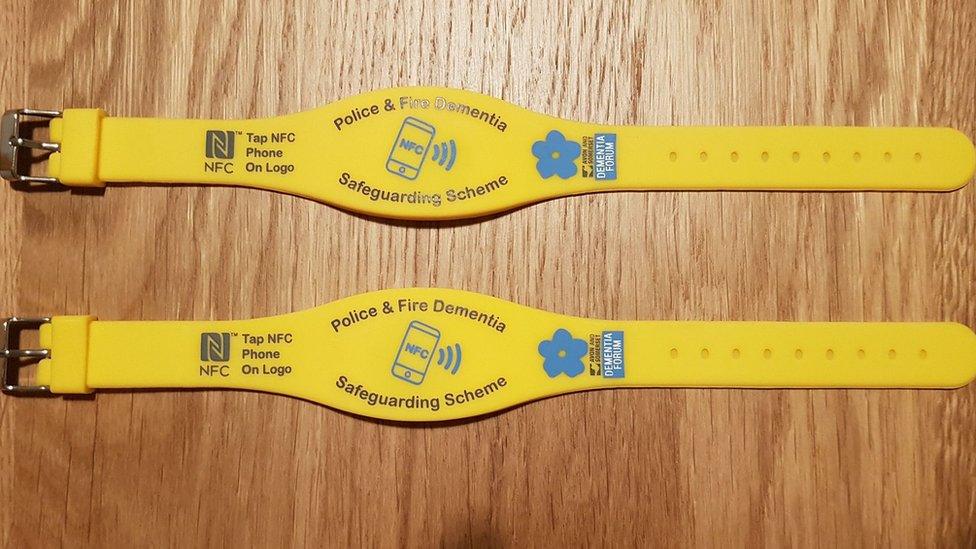Wiltshire Police wristband to help people with dementia
- Published
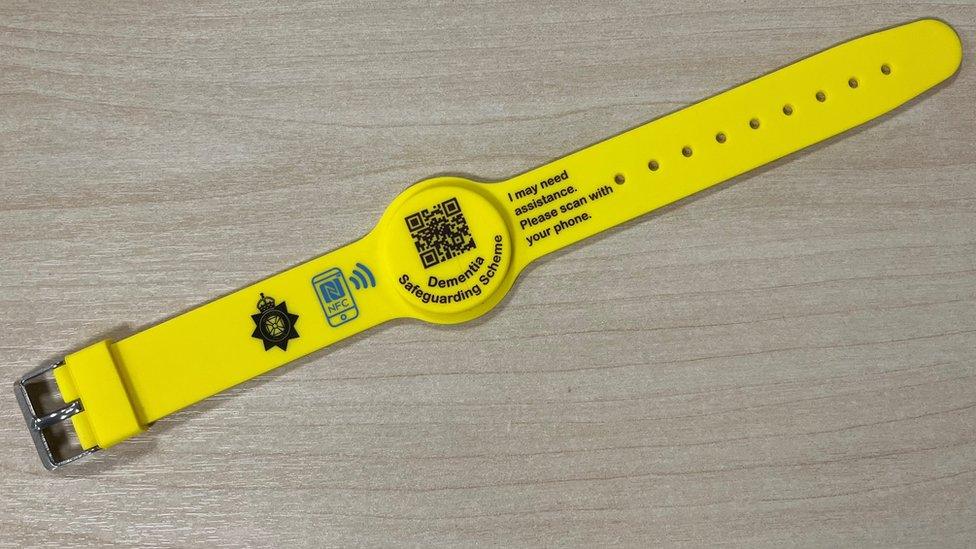
The wristbands do not contain a GPS tracker and are not a replacement for calling 999, Wiltshire Police say
Police wristbands are being offered to people with dementia, so they can be found quickly if they go missing.
Some 3,000 bands are being issued by Wiltshire Police at a cost of £8,000.
The bracelet stores information including the wearer's name, age, home town and next of kin contact details which can then be accessed by scanning the bracelet with a smartphone.
Angharad Caton, missing persons coordinator at Wiltshire Police, welcomed their introduction.
Ms Caton said: "Anyone who finds a person in distress or appearing lost wearing one of these new bands can help reunite that person with their carers and loved ones quickly."
Kate Gilmore, whose husband John Newlan was diagnosed with Alzheimer's four years ago, said such devices were helpful.
She signed her husband up for a Near Field Communication (NFC) device tag and lanyard, which works similarly to the wristband, from Avon and Somerset Police.
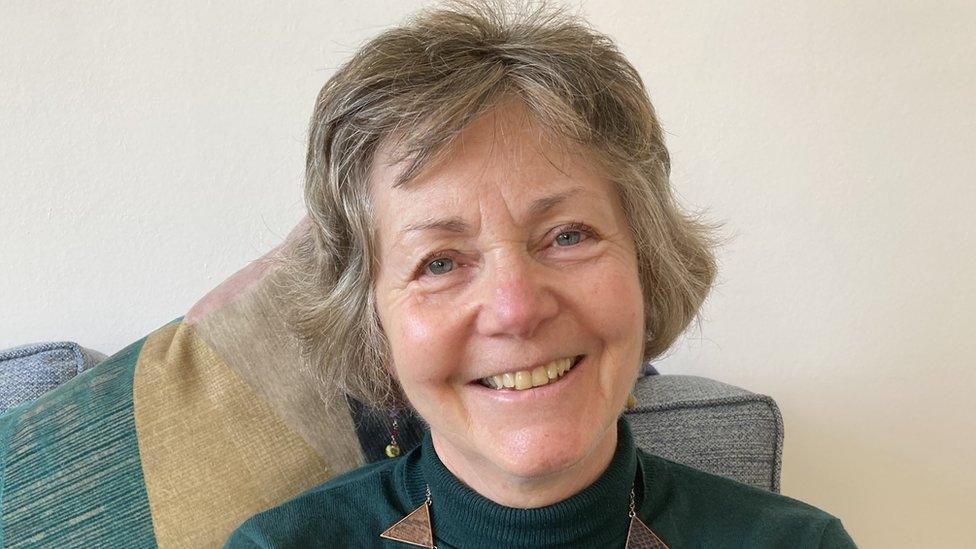
Kate Gilmore, whose husband John Newlan has Alzheimer's, signed up for NFC device a year ago
"About five days after we received it, John decided he would go out for a walk and got a bit confused as to where he was," she said.
She spent an hour hunting through the local neighbourhood for her husband before returning home without him.
"The police actually rang me and within five minutes he was back home.
"Fortunately two people stopped him, they could see he was confused, and they talked to him and called the police.
"There's such a lot going on in life when somebody has got dementia and you are caring for them.
"You just don't know when you're going to use it."
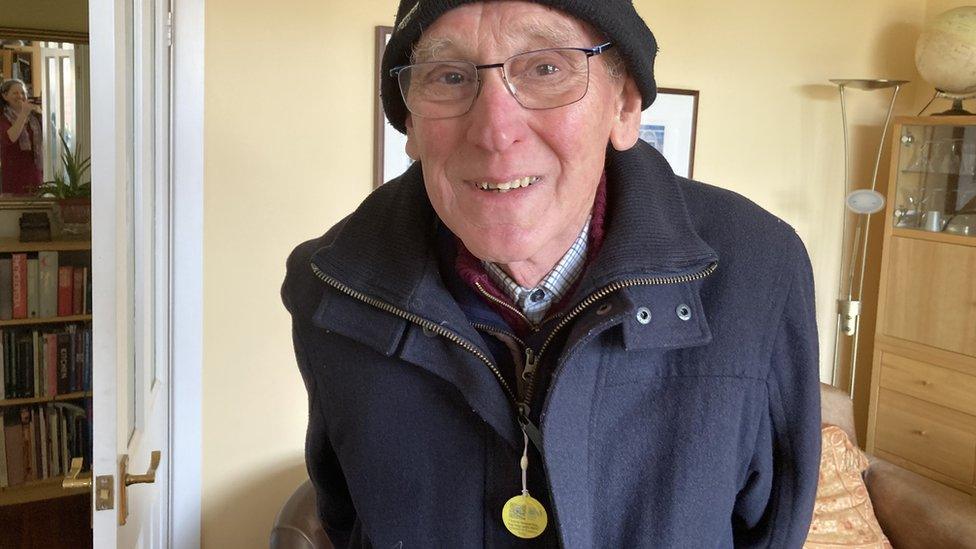
John Newlan was found using the NCF device just five days after receiving it
Ms Canton added that for the police £8,000 for 3,000 bands was a "miniscule" cost compared to each missing person investigation which costs about £2,500.
She said: "The wristbands don't have any GPS trackers but we hope with the help of these bands anyone who goes missing will be found quicker and returned home safely with minimal police interaction."
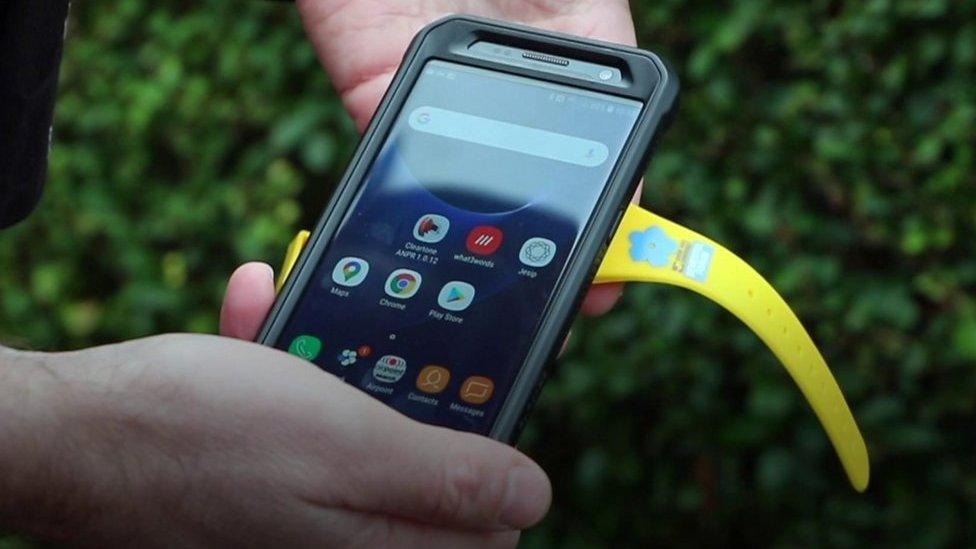
The bracelets store essential information about the wearer
The devices are available through the Wiltshire Bobby Van, Alzheimer's Support and Carer Support Wiltshire but people will need to be assessed before they are given one.
Leanne Hubbard, from Carer Support Wiltshire, said the wristbands will bring "extra peace of mind" to carers.
"Being a carer can be hard, carers not only carry out day-to-day tasks for the person they look after, but often carry a lot of worry about that person and all the 'what ifs'," she said.

Follow BBC West on Facebook, external, X, external and Instagram, external. Send your story ideas to: bristol@bbc.co.uk , external
Related topics
- Published13 April 2022
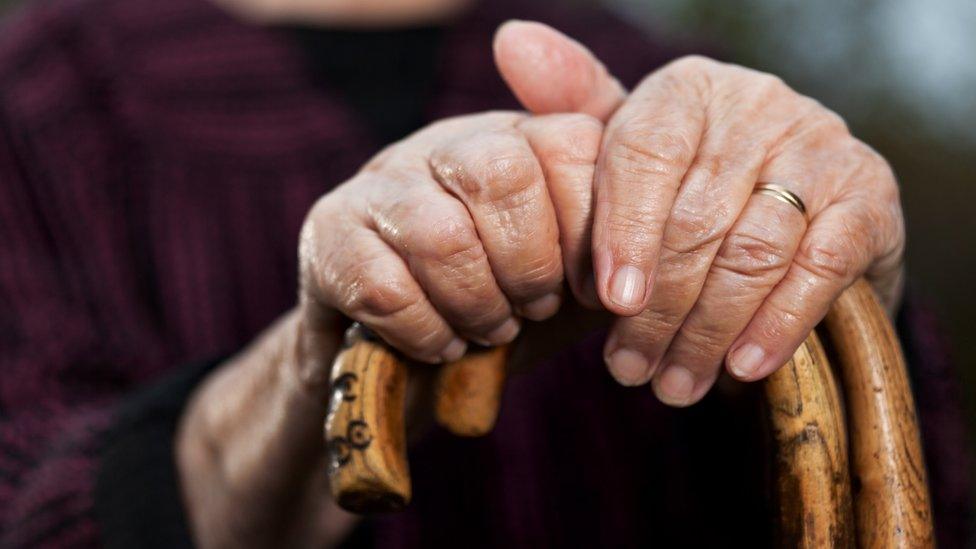
- Published25 November 2020
